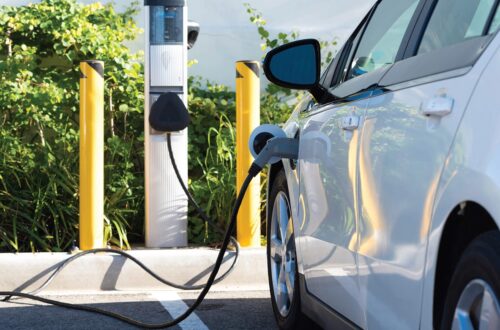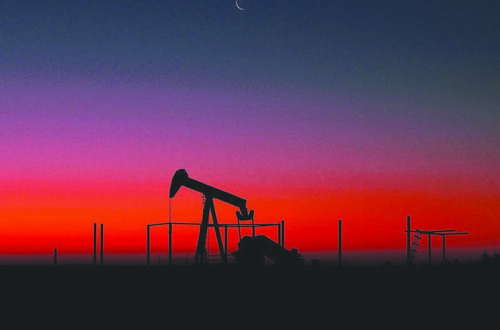Fossil fuels dominate our lives
We occasionally receive letters from readers calling our attention to the fact that wind turbines are not green because they kill birds, are an eyesore, and make noise. We also had a President that claimed windmills cause cancer and destroys the value of homes. And there have been many articles written claiming electric cars (EVs) are more damaging to the environment than gas-fueled cars.
The claim is that the manufacturing processes used to build EVs and their batteries produce more CO2 and other side effects than are ever offset over their lifetime of use. This same issue is used against solar panels and wind turbines, along with the argument that they take up lots of valuable real estate. These same sources also like to point out that we face a huge recycling problem as EV batteries, wind turbine blades, and solar panels end their useful lives.
The authors of these articles want to convince us that EVs and renewable energy technologies are not the answer to the climate change problem (if indeed, climate change exists). Instead, they want us to continue with business as usual, i.e., burning fossil fuels. Why? Because when oil flows, so does the money.
And because wind turbines and solar panels are in your face visible, and oh so easy to use the NIMBY syndrome to demonize them. Yes, there are issues with solar and wind power. And yes, electric cars have issues with the mining of lithium and certain rare elements.
But what the naysayers don’t talk about and hope will remain off-camera are all the ongoing rapid developments that reduce or eliminate most of these issues. To admit that EVs and renewable energy are emerging and promising technologies that will only get cleaner in the future would be to acknowledge that they are the future. They also don’t talk about a future where new technologies will create a clean burning fossil fuel. And why don’t they? Because such technologies do not exist.
Today, oil, coal, and natural gas have the upper hand in this ongoing debate for several reasons. Most importantly, they have served us very well for hundreds of years. We are used to them and rely on them to provide us with our comfortable way of life.
Then there is addiction. We are addicted to their almost magical qualities of convenience, power, and low price. Today’s renewables and EVs can’t break that addiction, and we’ve been fooled before with promises of cheap, unlimited energy from newer technologies such as nuclear fission. Fool me once…
Fossil fuels dominate our lives because they are never seen as bad guys. Crude oil resides deep underground and is moved to refineries via underground pipelines. All out of sight and out of mind. The gasoline and diesel for our cars are stored underground and pumped into our cars’ fuel tanks without being seen. Even as we drive, the carbon dioxide, carbon monoxide, and soot (inhalable solid particles and liquid aerosols that are smaller than 2.5 microns in diameter) that are spewed out of our car’s tailpipes are invisible. Their invisibility makes it easy to fool ourselves that there is nothing to be concerned about. It’s all a part of the false magic of fossil fuels.
The reality is that burning fossil fuels is destroying the environment and killing us. Their magic has blinded us to their evil.
I urge you to do the research on carbon dioxide and its effect on the climate or what your car’s soot and carbon monoxide emissions do to our health. I urge you to think back and remember the oil spill created after the Deepwater Horizon explosion in the Gulf of Mexico and the spill resulting when the tanker Exxon Valdez ran aground in Prince William Sound. These two events should have opened our eyes, but tragically they did not.
And finally, I urge you to check out the Center for Biological Diversity’s analysis of America’s pipeline system. According to the data, since 1986, there have been nearly 8,000 incidents (nearly 300 per year on average), resulting in more than 500 deaths), more than 2,300 injuries), and almost $7 billion in damage.
Since 1986 pipeline accidents have spilled an average of 76,000 barrels per year or more than 3 million gallons. This is equivalent to 200 barrels every day.
So what can you and I do? Simple. Make a definite plan to stop the flow of fossil fuels into our homes and our vehicles.






